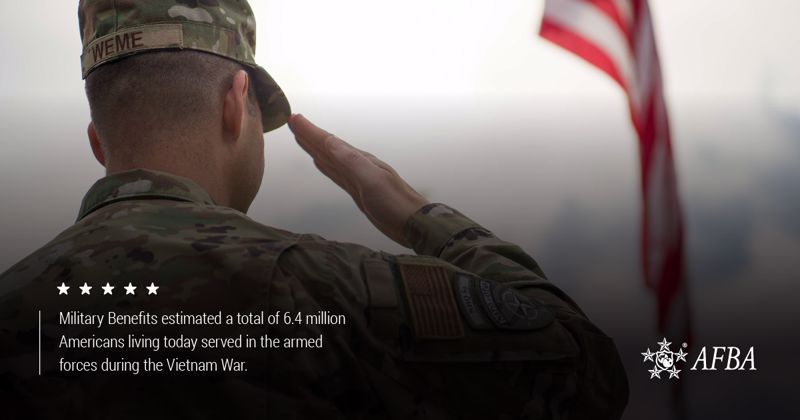Vietnam War Veterans Day became a nationwide, yearly observance in 2017. A strong bipartisan effort to recognize the holiday on a regular schedule concluded with President Donald Trump signing the Vietnam War Veterans Recognition Act of 2017 into law. Since then, National Vietnam War Veterans Day has fallen on March 29 each year.
The roots of a dedicated holiday
This special observance recognizes all veterans who served in the U.S. military over the course of the Vietnam War, which spanned nearly 20 years of escalating conflict.
The first U.S. ground combat troops — 3,500 Marines — arrived in 1965, according to The Atlantic. By early 1973, when U.S. combat forces were ordered to withdraw from the country, 3,403,000 Americans had served in the armed forces during the Vietnam conflict, according to the U.S. Department of Veterans Affairs. That number includes more than 55,000 servicemembers who gave their lives for their country, and more than 150,000 who were wounded.
Despite meritorious service from so many servicemembers and the ultimate sacrifice made by tens of thousands of U.S. troops, the tense and complex social and political climate of the mid-1970s meant that many returning veterans were denied a proper welcome home, as the National Conference of State Legislatures explained. National Vietnam War Veterans Day, and the somewhat irregular state- and territory-level observances that preceded it, are an effort to belatedly recognize the valiant efforts of U.S. troops who served in this war.
The date of the observance is especially significant for veterans. March 29, 1973 was the day the last combat troops left Vietnam.
Supporting Vietnam veterans every year
Military Benefits estimated a total of 6.4 million Americans living today served in the armed forces during the Vietnam War.

The holiday takes this into account: It officially recognizes all personnel with active-duty service between Nov. 1, 1955 and May 15, 1975. This inclusive approach celebrates and shows respect to all Vietnam veterans regardless of other details such as length of service, where they were stationed and which duties they performed.
A single, national date for the observance also raises cultural awareness as events across the country fall on the same date on a predictable, yearly schedule. Instead of most, but not all, states and territories holding observances on or around March 29, the entirety of the U.S. recognizes a unified event.
Safely recognizing National Vietnam War Veterans Day during a pandemic
Memorials and ceremonies recognizing and thanking Vietnam veterans for their service have developed across the country since the conflict ended. They represent untold hours of organizing and effort on the part of veterans groups, nonprofits, government agencies and others who want to provide the appropriate respect and gratitude to the Americans who served in this conflict. While the coronavirus pandemic has curtailed many in-person gatherings, the U.S. Department of Defense (DOD) highlighted many examples of safer events that still effectively thank and remember Vietnam veterans.
The DOD listed three goals for the 2021 observance of this event, and for every March 29 in the future:
- Thanking and honoring Vietnam veterans for their service and sacrifice.
- Connecting with veterans who are isolated or hard to reach.
- Supporting the healing that occurs when veterans denied a proper welcome home after their service finally receive the recognition they deserve.
As March 29 approaches, take some time out of your day to recognize the Vietnam veterans in your own life and community.


